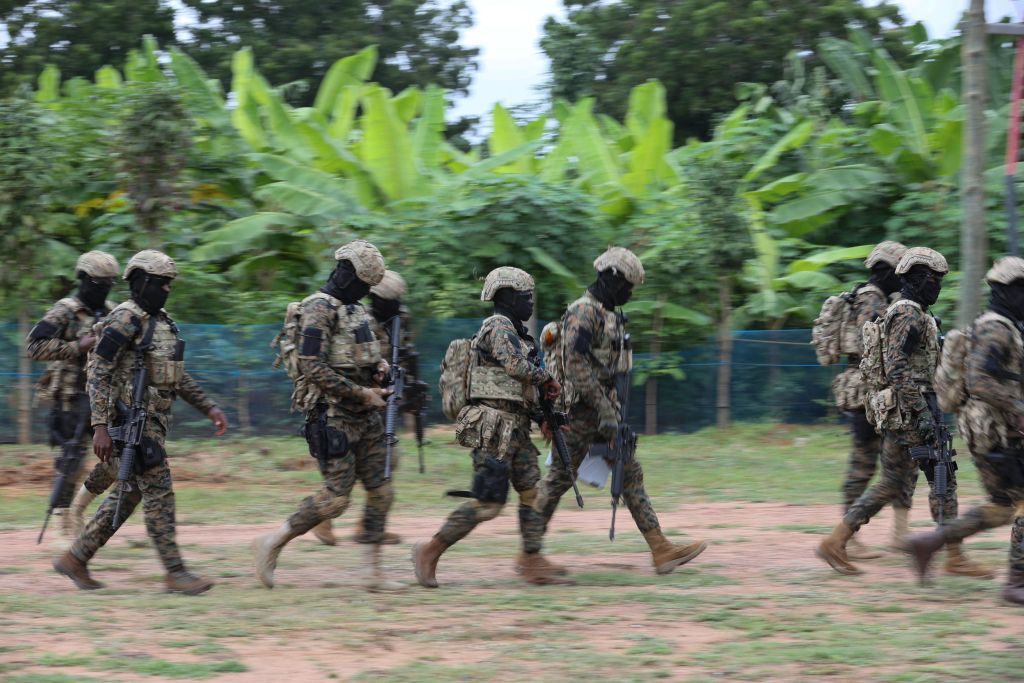ADF STAFF
Northern Ghana has emerged as a logistical base from which violent extremist organizations from Burkina Faso launch attacks into other areas as they try to expand farther into West Africa. Terrorists linked to al-Qaida and the Islamic State group (IS) also use Ghana’s north as a medical base where their injured fighters are treated.
According to new reporting by Reuters, Ghanaian authorities are “turning a blind eye” to terrorists crossing over from Burkina Faso to stock up on food, fuel and explosives. While that approach has spared Ghana from the kind of deadly terror attacks that have plagued the Sahel, it risks allowing militants to establish themselves in the country and possibly recruit new fighters from marginalized local communities, observers say.
Ghana is working with Burkina Faso to force the terrorists out, Boniface Gambila Adagbila, Ghana’s ambassador to Burkina Faso, told Reuters. This development underscores the fears of security analysts who for years have warned of terror groups linked to al-Qaida and the IS expanding into West African nations.
“The two, big veteran terrorist (groups) are gaining ground,” Seidik Abba, president of the CIRES research institute in Paris, told Reuters. “The threat is spreading geographically.”
According to a July report by the Africa Center for Strategic Studies (ACSS), the annual number of violent incidents linked to militant Sahelian groups in and within 50 kilometers of coastal West African countries increased by more than 250% over the past two years, with more than 450 incidents.
The al-Qaida-affiliated Jama’at Nusrat al-Islam wal Muslimeen (JNIM) is among the main terror groups in the region. Clingendael, the Netherlands Institute of International Relations, said in a report that JNIM does not launch attacks in Ghana because it does not want to disturb supply lines or provoke Ghana’s Army, which is viewed as strong.
“Yet, to avoid escalation [Ghana] also appears to have accepted de facto non-aggression with JNIM,” the Clingendael report said.
Ghana’s security ministry denied this claim. It said in an October statement there were no “non-aggression policy” or tacit agreements with militant groups. “The ministry strongly rejects the portrayal of Ghana as a ‘supply line’ for militants,” the statement said. “Ghana’s counter-terrorism efforts are rightly commended by her partners in the relentless regional and global fight against terrorism.”
Speaking anonymously, a senior Ghanaian security official said the terrorists are being monitored and are sometimes used as informants. “We’ve arrested a lot of terrorists in the past and handed them over to Burkina,” the official told Reuters.
Benin has been the coastal African nation hardest hit by the spreading violence. The number of fatalities related to Islamist violence in the country doubled to 173 in the past year, the ACSS reported. The percentage of increased fatalities was similar in Togo, which recorded 69 deaths.
Benin recorded its first incident of extremist violence in 2019, and the number of recorded attacks by Sahelian terror organizations on Beninese soil has risen every year since. There were 20 attacks — mostly by JNIM, but also by the IS — in 2022 and 40 in 2023, according to The Defense Post.
The Beninese Army said last year that the country experienced the sharpest rise in extremist militant attacks in Africa as terror groups from neighboring Burkina Faso and Niger increasingly targeted northern Benin, particularly in the W-Arly-Pendjari complex of parks. Between July 2023 and July 2024, the number of deaths in Benin due to extremist violence doubled to 173 over the previous one-year time frame, according to the ACSS. In response, the Beninese government has increased its military presence at border bases.
Terrorists in Benin’s W National Park killed at least seven Beninese security forces and five rangers working with a nonprofit organization in July.
On July 20, JNIM attacked a northern Togo Army barracks near the Burkina Faso border, killing six people and seizing weapons. At the time, JNIM also claimed responsibility for attacks on eight military operations in Burkina Faso, Mali and Niger, saying it had killed more than 22 troops in four days.
Togolese President Faure Gnassingbé in April said that the jihadists had killed around 140 people, including some 100 civilians, since their first attacks in Togo in late 2021.
Four people on a tricycle in the north-central town of Bonzougou were killed in June after riding over an improvised explosive device. Several terror groups operate in the Savannahs region, although none claimed responsibility for the attack, Togo’s L’Alternative newspaper reported.
The attack in Bonzougou is farther south into Togo’s territory than previous attacks.

